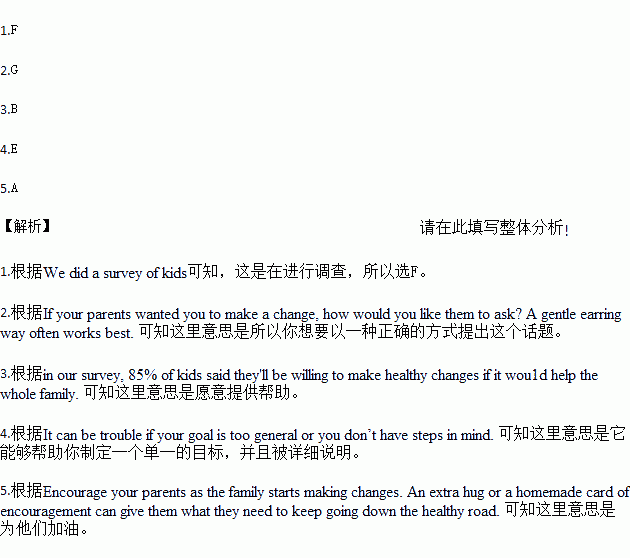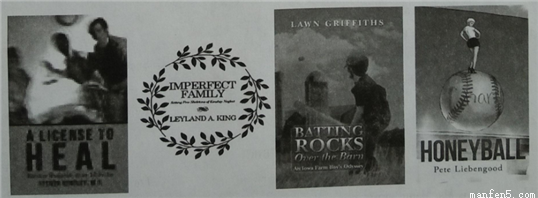题目内容
Did you ever look at your parents and wish they were healthier? You're not the only one. We did a survey of kids.1.69% of the kids would like their parents to make changes to be healthier. We also surveyed parents. They'd work extra hard to get healthier, if their kids asked them to.
Here are the tips on talking to your parents about their health habits.
▲Create an idea list. Try to remember what got you thinking about this topic. Is there an unhealthy thing you’d like to see them stop doing, or do less often? Get your list together.
▲ Practice how to say it. Changing can be hard. And it's not always easy to heat that someone you love thinks you need to do it. 2.If your parents wanted you to make a change, how would you like them to ask? A gentle earring way often works best.
▲3. in our survey, 85% of kids said they'll be willing to make healthy changes if it wou1d help the whole family. You might be willing to go for a walk together after dinner, Let your parents know you're willing to make an effort.
▲Make a decision, 4. It can be trouble if your goal is too general or you don’t have steps in mind.
▲5.Encourage your parents as the family starts making changes. An extra hug or a homemade card of encouragement can give them what they need to keep going down the healthy road.
A.Cheer them on.
B. Be willing to help.
C. Find the right person to talk with.
D. Parents care more about their kids’ health.
E. It helps to pick a single goal and be detailed.
F. 46% said they worry about their parents’ health.
G. So you'll want to bring up this topic in just the right way.


